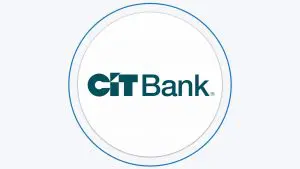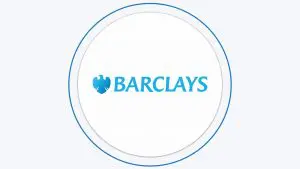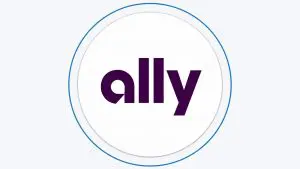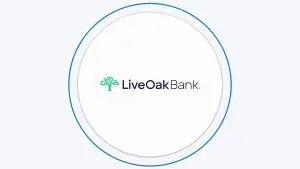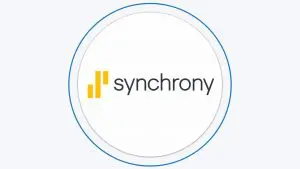A Rollover IRA is like a safe haven for your hard-earned savings. In simple terms, it's a special account where you can transfer your old retirement funds without facing penalties or taxes.
This article delves into the ins and outs of Rollover IRAs, explaining how they work, their benefits, and why they can be a smart financial move
What Is A Rollover IRA?
A Rollover IRA used to move funds from a previous employer's retirement plan, such as a 401(k) or 403(b), into a new account without incurring taxes or penalties. This can happen when you change jobs, retire, or leave an employer.
The Rollover IRA provides you with control over your retirement savings, offering a wide range of investment options like stocks, bonds, and mutual funds. It's a smart way to keep your retirement funds growing while maintaining the tax-advantaged status.
How a Rollover IRA Works
The rules and options for Rollover IRAs may vary based on factors like your age, the type of retirement plan you're rolling over from, and the financial institution you choose for your Rollover IRA.
Here are the steps on how a rollover IRA works:
- Rollover Decision: When you leave a job or retire, you can choose to move your accumulated retirement savings from your former employer's plan to a Rollover IRA.
- Setting Up the IRA: If you don't have an existing traditional IRA, you'll need to open one. You can do this through a financial institution like a bank, brokerage firm, or investment company.
- Transfer: You initiate the transfer process by requesting a direct rollover from your previous employer's retirement plan to your newly established Rollover IRA. This transfer is crucial to avoid triggering taxes or penalties.
- Choose Investment: Once the funds are in your Rollover IRA, you have more control over how to invest them. You can choose from a variety of investment options, such as stocks, bonds, mutual funds, and more.
- Withdrawal: When you reach the age of 59½, you can start withdrawing funds from your Rollover IRA without penalties. However, withdrawals are generally subject to income tax.
A financial advisor can help you understand the tax implications of a rollover IRA and can help you choose the right investment options for your needs.
What Else You Can Do With Your Old 401(k)?
Aside from rolling over your old 401(k) into a Rollover IRA, there are a few other options you could consider for managing your retirement savings:
- Keep it with your old employer: If you are happy with the investment options and fees in your old 401(k), you can keep it with your old employer. However, it is important to keep an eye on the fees, as they can change over time.
- Roll it over to your new employer's plan: If you have a new job and your new employer offers a 401(k) plan, you can roll your old 401(k) into it. This can be a good option if you want to consolidate your retirement savings into one account.
- Convert it to a Roth IRA: If you're willing to pay taxes on the amount you convert, you can convert your old 401(k) funds into a Roth IRA. Roth IRAs offer tax-free withdrawals in retirement, but the tax implications of this conversion should be carefully evaluated. This may be a good option if you are in a high tax bracket now and expect to be in a lower tax bracket in retirement.
- Cash it out: You can also cash out your old 401(k). However, this is typically not a good option, as you will have to pay taxes on the money and you may also have to pay an early withdrawal penalty if you are under age 59½.
Benefits And Drawbacks Of Rolling IRA
Rolling IRA comes with its own set of pros and cons. Understanding these can help you make an informed decision based on your specific financial situation and retirement goals.
Benefits | Drawbacks |
|---|---|
More Choices for Your Money | Less Flexibility |
Being in Charge | Losing Special Work Benefits |
Consolidation and Simplification | Less Protection from Creditors |
Paying Less Fees | Investing Is Tricky |
- More Choices for Your Money
IRAs usually give you more options for where you put your money compared to many 401(k) plans.
With an IRA, you can pick from different things to invest in, like pieces of companies (stocks), loans to companies and governments (bonds), groups of investments (mutual funds and ETFs), and other ways to grow your money.
- Being in Charge
When you move your money to an IRA, you get to have more say in what happens to it.
You can look after your investments, change how much you invest in different things, and adjust your plan based on what you like and how the economy is doing.
- Consolidation and Simplification
If you have many 401(k) accounts from old jobs, putting them into one IRA can make things easier.
It's simpler to keep track of and manage just one retirement account instead of many.
- Paying Less Fees
IRAs usually have smaller fees than 401(k) plans. This can help you save money over the years.
- Less Flexibility
401(k) plans usually give you more options than IRAs. For example, some 401(k) plans let you borrow money from your account, but IRAs don't.
- Losing Special Work Benefits
Certain 401(k) plans have special things you might not find in an IRA. Also, some employers might add money to your account, which is really helpful.
- Less Protection from Creditors
In a few states, 401(k) plans give you more protection from creditors than IRAs do.
If keeping your money safe from creditors is a big worry, talk to a money expert to know your state's rules.
- Investing Is Tricky
Taking care of your investments in an IRA needs some money knowledge and discipline.
Top Offers From Our Partners
Rollover IRA: Things To Consider
Rollover IRAs can be a great option for managing your retirement savings, but there are important factors to consider before making the move:
- Tax implications: When you roll over your old 401(k) to a rollover IRA, the money is not taxed. However, if you take a distribution from your rollover IRA before you reach age 59½, you may have to pay taxes on the money and you may also have to pay an early withdrawal penalty.
- Investment options: Rollover IRAs typically offer a wider range of investment options than employer-sponsored retirement plans. This can be a good thing if you want to choose investments that meet your individual needs and risk tolerance. However, it can also be overwhelming, so it is important to do your research and choose investments that are right for you.
- Fees: Rollover IRAs can have fees associated with them, such as account maintenance fees, investment fees, and trading fees. It is important to compare the fees of different rollover IRAs before you open an account.
Employer Match and Benefits: Some 401(k) plans offer employer matching contributions. If you're rolling over from such a plan, you might be leaving behind this “free money.” Weigh this against the benefits of an IRA.
Creditor Protection: Depending on your state's laws, 401(k)s might offer more protection from creditors compared to IRAs. If creditor protection is a concern, research your state's rules and seek advice from a financial professional.
Early Withdrawal: Assess whether you might need to access your funds before retirement. 401(k) plans sometimes allow loans, while IRAs generally do not. Consider the penalties and restrictions on early withdrawals.
Required Minimum Distributions (RMDs): Starting at age 72, traditional IRAs require you to take annual withdrawals known as RMDs. Consider how RMDs might impact your financial plans and taxes.
Professional Advice: Deciding whether to roll over your old 401(k) involves various financial aspects. Consulting a financial advisor can provide personalized insights based on your situation.
Remember that what's right for one person might not be the best for another. Carefully weigh these considerations to make an informed decision that aligns with your unique financial goals and circumstances.
When Rolling IRA May Be A Good Idea?
Here are some situations when it may be a good idea to roll over your old 401(k) to a rollover IRA:
- Your old 401(k) has high fees: If your old 401(k) has high fees, you may be better off rolling it over to a rollover IRA. Rollover IRAs typically have lower fees than employer-sponsored retirement plans.
- Your old 401(k) has limited investment options: If your old 401(k) has limited investment options, you may be better off rolling it over to a rollover IRA. Rollover IRAs typically offer a wider range of investment options than employer-sponsored retirement plans.
- You are no longer employed by the company that sponsors your old 401(k): If you are no longer employed by the company that sponsors your old 401(k), you may be better off rolling it over to a rollover IRA. This is because you may not be able to make contributions to your old 401(k) anymore, and you may have to pay fees to keep the account open.
- You want more control over your investments: If you want more control over your investments, you may be better off rolling over your old 401(k) to a rollover IRA. With a rollover IRA, you can choose when to buy and sell investments, and you can change your investment strategy as needed.
However, it is important to note that there are also some potential disadvantages to rolling over your old 401(k) to a rollover IRA. For example, you may have to pay fees to open and maintain the account. Additionally, if you a
FAQs
How do I decide between a Rollover IRA and leaving my funds in an old 401(k)?
Consider factors like investment options, fees, employer benefits, and your long-term financial goals to determine which option aligns best with your needs. Consulting a financial advisor can provide personalized guidance.
How do fees in a Rollover IRA compare to those in a 401(k)?
IRAs generally have lower fees compared to many 401(k) plans, which can help your savings grow over time.
Can I borrow money from a Rollover IRA like I can from a 401(k)?
No, you cannot borrow money from an IRA. This flexibility is usually unique to some 401(k) plans.
Can I consolidate multiple old 401(k) accounts into a single Rollover IRA?
Yes, consolidating multiple old 401(k) accounts into a single Rollover IRA can simplify management and potentially reduce fees
Are there any tax implications for rolling over to an IRA?
Direct rollovers are usually tax-free. However, converting to a Roth IRA might trigger taxes, as you'd be moving pre-tax contributions to an after-tax account.




